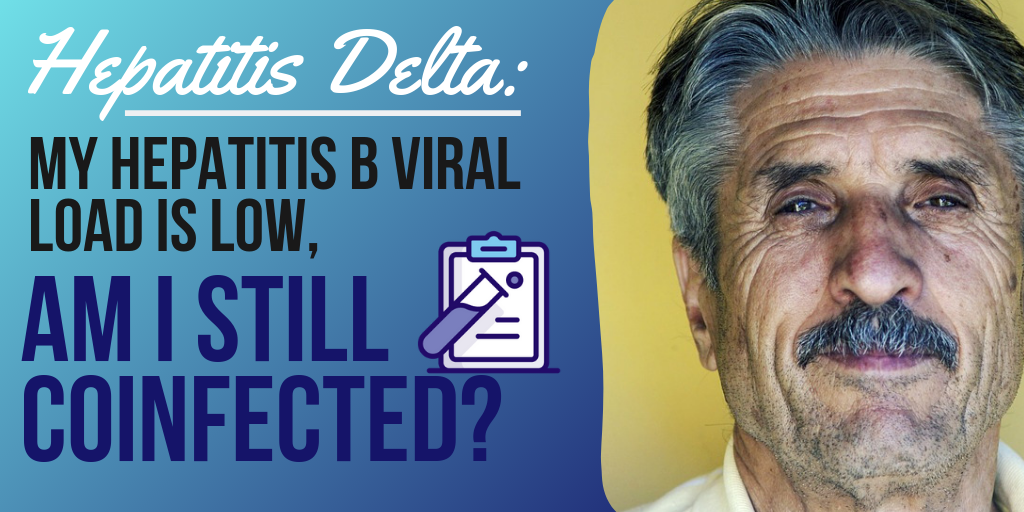 For people who have been diagnosed with chronic hepatitis B and delta coinfection, a low or undetectable hepatitis B viral load does not usually indicate that they’ve cleared both infections. This is because, in cases of coinfection, hepatitis delta usually becomes the dominant virus, and suppresses hepatitis B, slowing or even stopping its replication entirely. If someone is still positive for the hepatitis B surface antigen (HBsAg), the hepatitis delta virus can still replicate (often with copies in the millions) and cause potential liver damage 1. For this reason, the test to measure hepatitis delta activity, the HDV RNA test, is important in disease monitoring and management 2,3. Available since 2013, the HDV RNA test can be acquired internationally through the Centers for Disease Control and Prevention (CDC), and from several labs in the US.
For people who have been diagnosed with chronic hepatitis B and delta coinfection, a low or undetectable hepatitis B viral load does not usually indicate that they’ve cleared both infections. This is because, in cases of coinfection, hepatitis delta usually becomes the dominant virus, and suppresses hepatitis B, slowing or even stopping its replication entirely. If someone is still positive for the hepatitis B surface antigen (HBsAg), the hepatitis delta virus can still replicate (often with copies in the millions) and cause potential liver damage 1. For this reason, the test to measure hepatitis delta activity, the HDV RNA test, is important in disease monitoring and management 2,3. Available since 2013, the HDV RNA test can be acquired internationally through the Centers for Disease Control and Prevention (CDC), and from several labs in the US.
For those suspected of having acute hepatitis B and delta coinfection, HBsAg testing should follow 6 months after initial diagnosis. If HBsAg is negative (non-reactive), both infections are likely to have cleared. It’s important to remember that people who contract hepatitis B and delta during one exposure are likely to clear both viruses. If HBsAg is positive (reactive) after 6 months, both infections are likely chronic (life-long). Those who are known to have a chronic hepatitis B infection and then become infected with hepatitis delta later on, they are likely to develop chronic coinfections.
Following diagnosis with hepatitis B, with or without delta coinfection, it is important to have close, household contacts and sexual partners screened, and to follow simple prevention measures and practice safe sex using condoms.
Both hepatitis B and delta are prevented with the safe and effective hepatitis B vaccine series.
For more information on hepatitis B and delta coinfection, visit www.hepdconnect.org or contact us at connect@hepdconnect.org.
References:
- Huang, C. R., & Lo, S. J. (2014). Hepatitis D virus infection, replication and cross-talk with the hepatitisB virus. World journal of gastroenterology, 20(40), 14589–14597.
- YurdaydınC, Tabak F, Idilman R; Viral Hepatitis Guidelines Study Group. Diagnosis, management and treatment of hepatitis delta virus infection: Turkey 2017 Clinical Practice Guidelines. Turk J Gastroenterol 2017; 28(Suppl 2); S84-S89. Available at: https://www.turkjgastroenterol.org/sayilar/304/buyuk/S84-S89.pdf
- Tseng, C. H., & Lai, M. M. Hepatitis delta virus RNA replication.Viruses, 1(3), 818–831.

